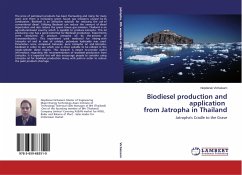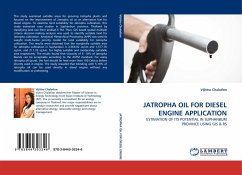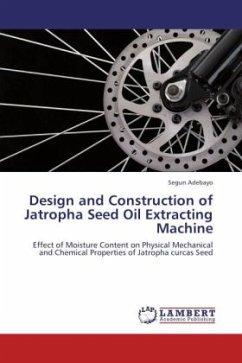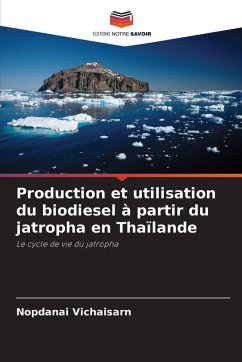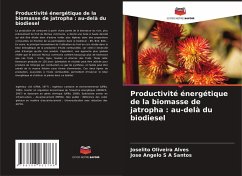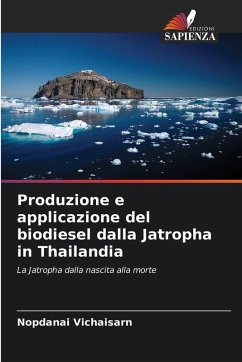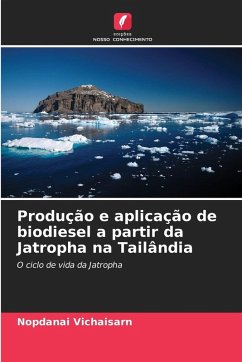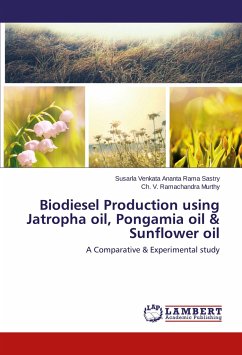
Biodiesel Production using Jatropha oil, Pongamia oil & Sunflower oil
A Comparative & Experimental study
Versandkostenfrei!
Versandfertig in 6-10 Tagen
27,99 €
inkl. MwSt.

PAYBACK Punkte
14 °P sammeln!
Biodiesel production through optimized transesterification processes is attracting continuing interest among researchers. In the transesterification process, a triglyceride molecule reacts with an alcohol molecule causing the separation of one the fatty acids of the triglyceride, producing a diglyceride, and an ester. This glyceride reacts with a second molecule of alcohol that takes another fatty acid, forming a second ester and a mono glyceride. Finally a third molecule of alcohol reacts with the monoglyceride, forming the third ester and a molecule of glycerin. The reactions occurring are r...
Biodiesel production through optimized transesterification processes is attracting continuing interest among researchers. In the transesterification process, a triglyceride molecule reacts with an alcohol molecule causing the separation of one the fatty acids of the triglyceride, producing a diglyceride, and an ester. This glyceride reacts with a second molecule of alcohol that takes another fatty acid, forming a second ester and a mono glyceride. Finally a third molecule of alcohol reacts with the monoglyceride, forming the third ester and a molecule of glycerin. The reactions occurring are reversible, and the stoichiometric ratio is three moles of methanol for each mole of oil being processed. The reaction can be carried out with concentrations of alcohol in excess, as this reduces time and increases the conversion efficiency of the process. In this work, the experiments have been carried out using Jatropha, Karanja and Sunflower oil. This work is aimed for utilization by researchers, industrialists' and traditional businesses. Apart from this it will be especially relevant and useful for the students of Mechanical and Chemical engineering for carrying out research in this area.



